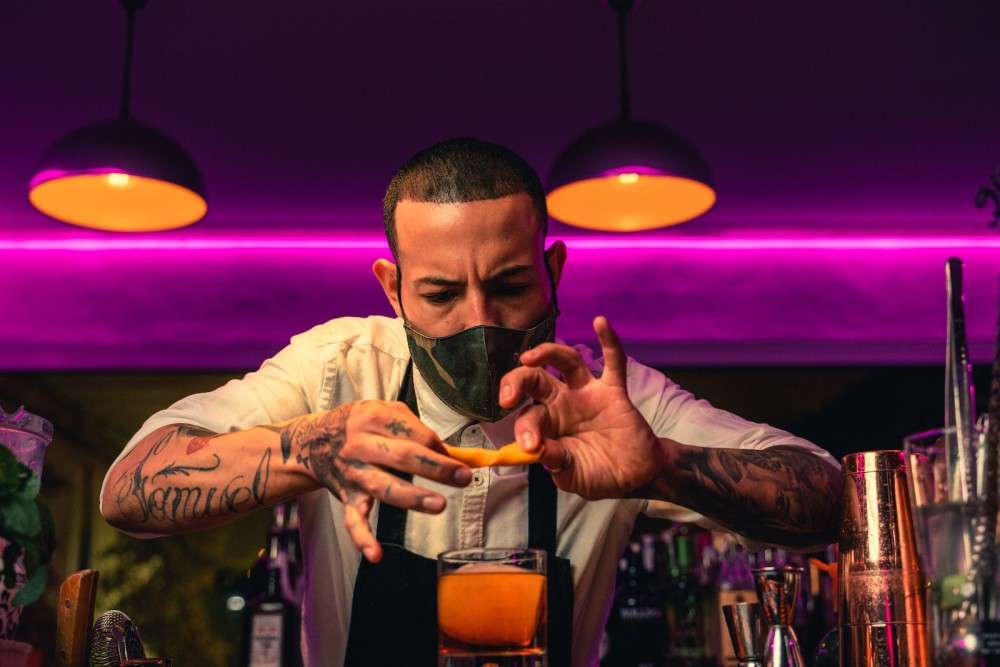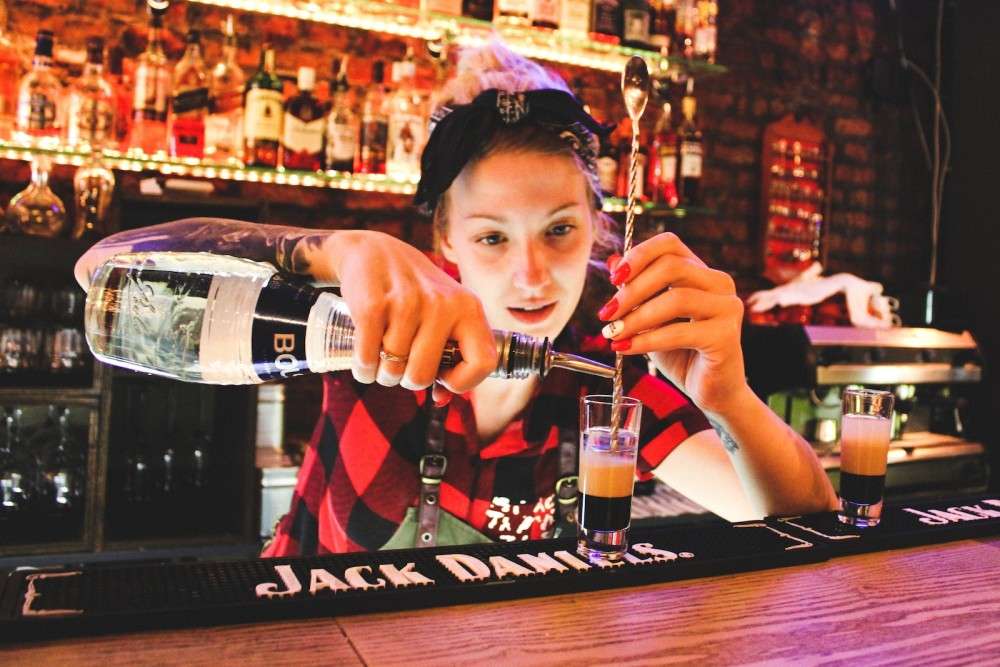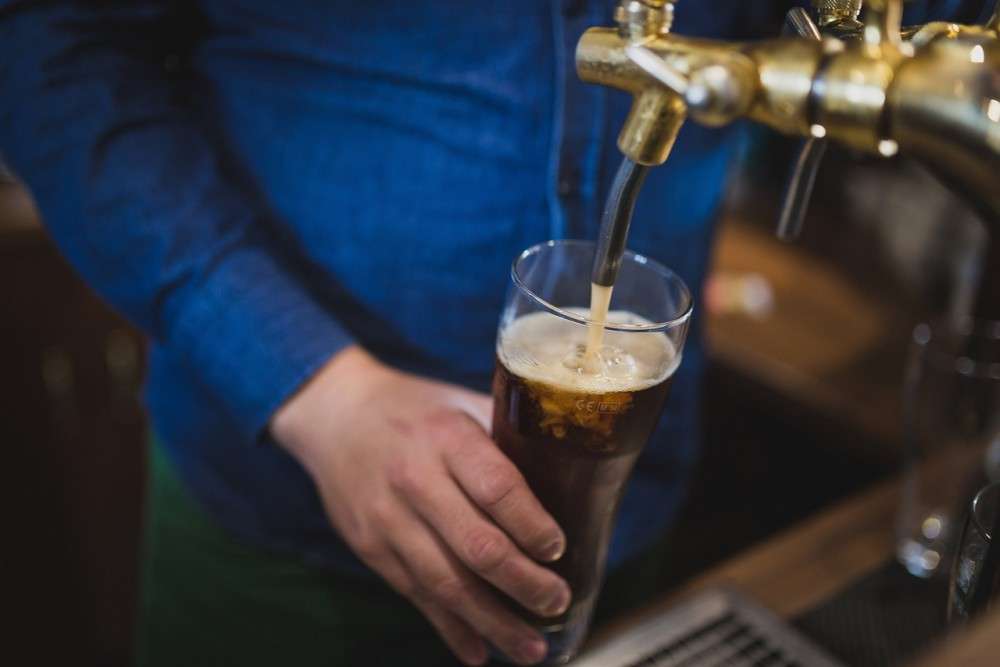Bartending, my friends, is more than just mixing drinks; it’s an art form, a craft that transforms liquid ingredients into delightful elixirs. In this article, we’ll take a deep dive into the role of a bartender, exploring what they do, what they serve, and what it takes to become a master behind the bar.
So, what’s the deal with bartenders? Well, think of them as the maestros of the night, orchestrating a symphony of flavors and experiences for patrons. But first, let’s answer the burning question:
1 Who is a bartender?
A bartender is a skilled professional who mixes and serves alcoholic and non-alcoholic beverages in bars, restaurants, and other hospitality establishments. They’re not just pourers of drinks; they’re creators of memories.
2 Bartending Basics
Now that we know what they are, let’s dive into what they do:
A. What are some of the common drinks they serve?
You walk into a bar, and you’re faced with a dazzling array of choices. Here are some classics and contemporary favorites:
| Classic Cocktails | Modern & Trendy Drinks |
|---|---|
| – Martini | – Espresso Martini |
| – Margarita | – Craft Beer Cocktails |
| – Old Fashioned | – Aperol Spritz |
| – Mojito | – Moscow Mule |
| – Daiquiri | – Spicy Margarita |
B. The Art of Mixology
They actually don’t just follow recipes; they create them. This is where mixology comes in. It’s the art of crafting unique and signature cocktails that set a bar apart.
3 Becoming a Bartender
Now that you’re thirsty for knowledge, let’s explore further:
A. What qualifications or skills are required to become a bartender?
Skills You’ll Need:
- Customer Service: They are the frontline of hospitality. You need to make customers feel welcome and ensure they have a great time.
- Multitasking: Imagine juggling multiple drink orders, all while engaging with customers. They are multitasking masters.
- Creativity: This is where you can shine. Creating new cocktails or putting a unique twist on old favorites can make you a legend in the industry.
Some of them start as barbacks (assistants) and work their way up. Take Jules from “Pulp Fiction” – he started as a barback and ended up in a whole different kind of adventure.
B. Certification and Licensing
While not always required, formal bartending education and certification can be a valuable asset. Many countries have laws governing the service of alcohol, and bartenders may need to be licensed.
Looking for Licensed Bartender Staff for a Party/Event?
We provide Licensed Bartender Staffing solutions for all occasions. Fill the Form and we will get back to you ASAP.
4 The Role of a Bartender
Let’s pull up a barstool and chat about what they do on a typical night:
- Mixing Drinks: This is the heart of the job. You’re crafting cocktails, pouring beers, and shaking up a storm.
- Inventory Management: You’re in charge of keeping track of what’s in stock and ordering supplies.
- Customer Relations: You’re a friendly face, a confidant, and sometimes even a therapist. You listen, chat, and create a memorable experience.
Ever watched the movie “Cocktail” starring Tom Cruise? While it’s a bit over the top, it gives you a glimpse into the high-energy world of bartending.
5 Etiquette Behind the Bar
Now, let’s talk manners. They follow a set of etiquettes to ensure everyone has a good time.

A. What are some common etiquettes that a bartender must follow?
Bar Etiquette:
- Greeting and Engaging: A warm welcome sets the tone. They engage with customers, making them feel at home.
- Responsible Alcohol Service: No one likes an over-poured drink. They serve alcohol responsibly, knowing when to say “enough.”
- Handling Tips and Gratuities: Bartenders often rely on tips. They appreciate a generous tip, but they don’t expect it. It’s a token of appreciation for excellent service.
6 Bartender vs. Mixologist
Now, let’s stir things up a bit.
Bartender:
- Focuses on traditional drinks and customer service.
- Masters the classics and ensures every customer gets a perfect Martini.
Mixologist:
- Specializes in creating unique, innovative cocktails.
- Might use molecular gastronomy techniques to craft extraordinary drinks.
Imagine a bartender as the rock star of the bar, while the mixologist is the mad scientist, creating drinks that push the boundaries of flavor and presentation.
If you are looking for Courses to develop your Restaurant Skills, You may Enroll here.
7 Tools of the Trade
Behind every great bartender is a set of essential tools. Let’s take a look:
| Essential Tools | Description |
|---|---|
| – Shakers | Mixing ingredients and creating a frothy top |
| – Jiggers | Measuring precise amounts of liquor |
| – Muddlers | Crushing herbs and fruits for cocktails |
| – Glassware | Different glasses for different drinks |
| – Garnishes | Citrus twists, cherries, and cocktail umbrellas |
| – Bar Spoon | Stirring cocktails with style |
These tools, combined with skill and creativity, allow bartenders to create liquid magic.
Ever seen a bartender gracefully flip a shaker in the air, catching it with flair? It’s not just for show; it helps mix the drink evenly.
8 The Perfect Pour
Now, let’s get into the nitty-gritty of crafting the perfect drink:

A. Pouring technique to make a perfect drink?
Precision is Key:
- They use jiggers to measure the exact amount of each ingredient.
- They pour liquids slowly and steadily to avoid over-pouring.
Layering and Presentation:
- For layered cocktails like a B-52, they pour each ingredient gently over the back of a spoon to create distinct layers.
- Garnishes, from citrus twists to maraschino cherries, are added with care to enhance both flavor and visual appeal.
Ever had a bartender make a flawless Espresso Martini? It’s a delicate balance of vodka, coffee liqueur, and freshly brewed espresso, resulting in a harmonious mix of flavors.
9 Legal Aspects
Let’s shift our focus from pouring to laws and regulations:
In many countries, the legal drinking age is typically 18 or 21, depending on the region. Bartenders must adhere to these laws when serving alcohol.
Looking for Licensed Bartender Staff for a Party/Event?
We provide Licensed Bartender Staffing solutions for all occasions. Fill the Form and we will get back to you ASAP.
10 Diverse Workplaces
They work in a variety of settings. Let’s explore the different types of bars and establishments where you might find them:
A. What are the different types of bars where they work?
| Types of Bars and Establishments | Description |
|---|---|
| – Dive Bars | Casual, neighborhood watering holes |
| – Upscale Cocktail Lounges | High-end venues with craft cocktails |
| – Beach Resorts and Cruise Ships | Serving vacationers in exotic locations |
| – Event Catering and Mobile Bartending | Bringing the bar to private events and parties |
11 Conclusion
In conclusion, it is a multifaceted profession that blends creativity, skill, and hospitality. Whether you’re crafting timeless classics or pushing the boundaries of mixology, the world of bartending offers endless possibilities. So, next time you sit at the bar, raise your glass to the talented bartender who’s there to make your night memorable. Cheers! 🍸
FAQs
How much does a bartender make in Ireland?
They typically earn an average annual salary of around €25,000 to €30,000, but tips can significantly boost their income.
What do I need to become a bartender in Ireland?
To become a bartender in Ireland, you don’t always need formal qualifications. However, excellent customer service skills, multitasking abilities, and a strong work ethic are essential.
Do you need a bartending license in Ireland?
No, Ireland does not require a specific bartending license. However, responsible alcohol service training is encouraged.
How much do bartenders make in Ireland per hour?
They earn an average hourly wage of €10 to €12, but this can vary based on experience and location.
What are the top 3 industries that employ bartenders?
They find employment primarily in bars and restaurants, hotels, and nightclubs. These industries offer diverse opportunities for bartending professionals.












